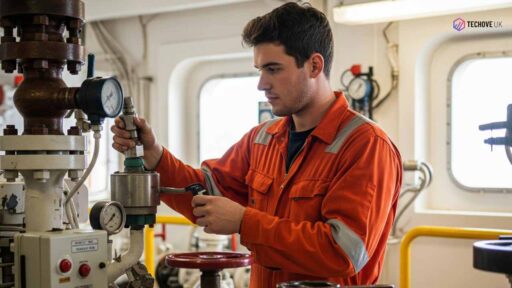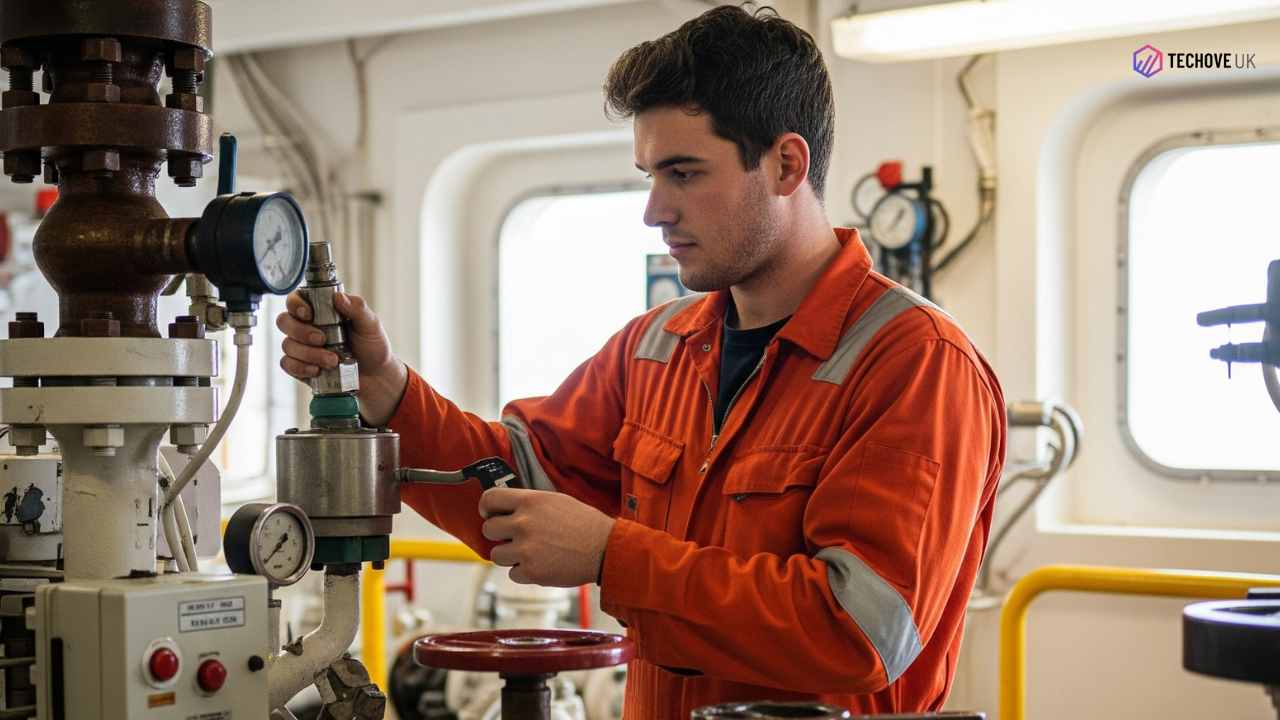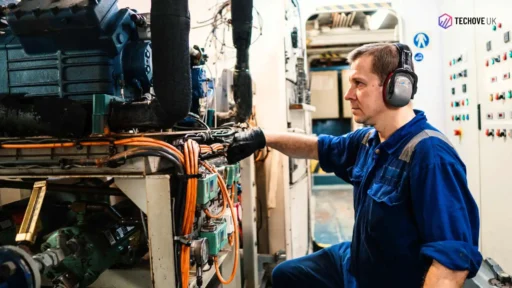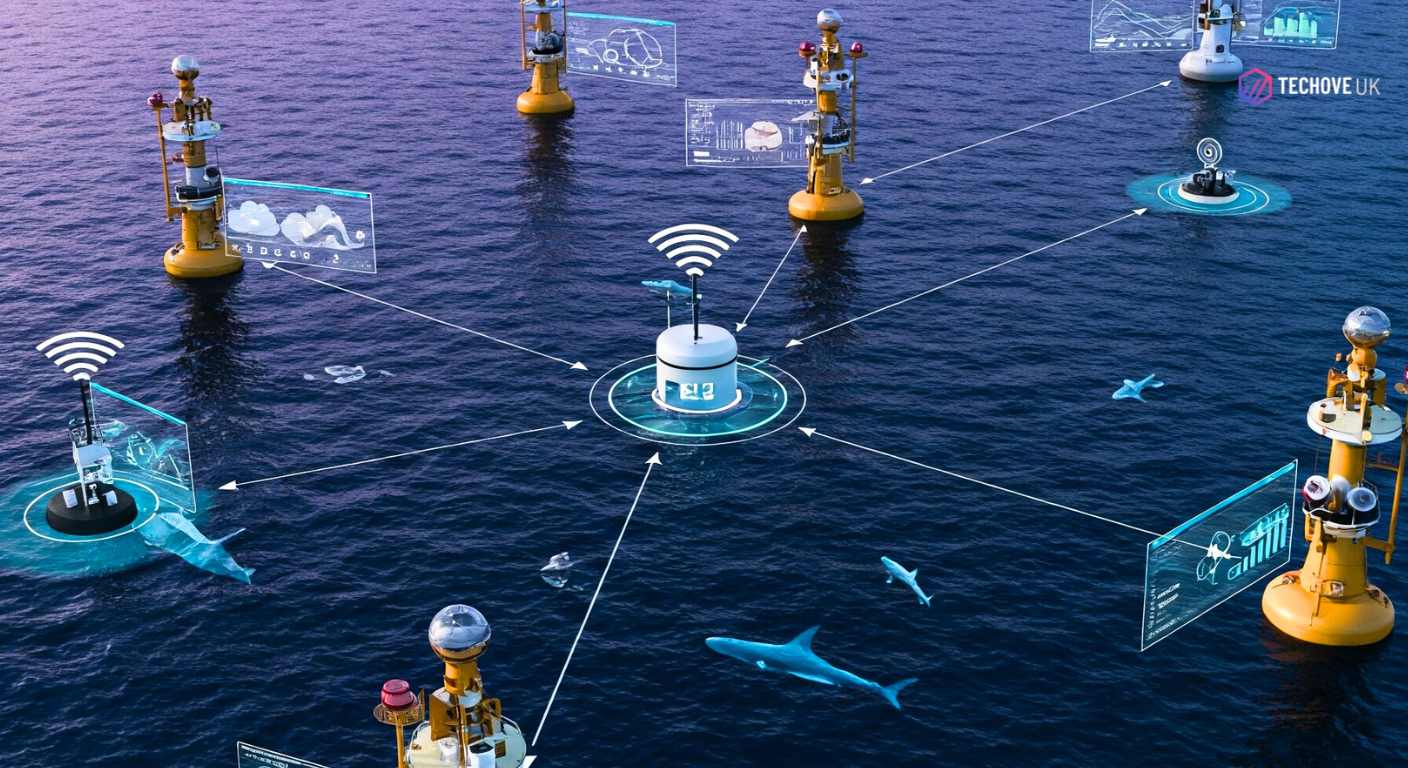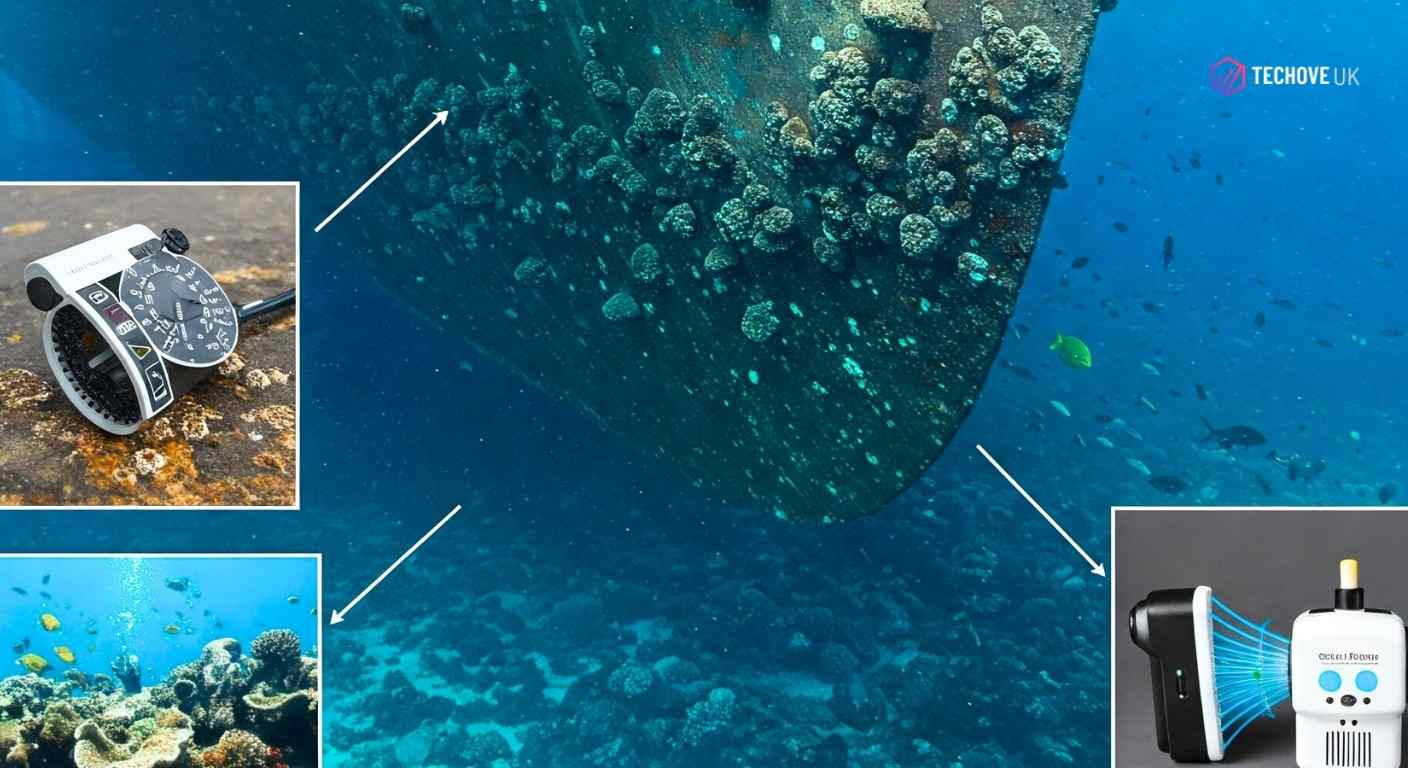Have you ever seen a giant ship or a huge oil rig floating far out in the ocean? They look like amazing metal cities on the water, don’t they? But how do these big structures stay safe and keep working far from land? Who makes sure all their lights stay on, their engines keep humming, and their giant drills do their job?
Well, meet the secret superheroes of the sea: marine engineers! These are the smart people who keep these huge floating cities running. They make sure everything inside works perfectly, no matter how stormy the waves get. They are like the rig’s main doctor, mechanic, and chief problem-solver all rolled into one. Ready to find out What Does a Marine Engineer do on an Offshore Rig? Let’s jump in!
What is an Offshore Rig?
Imagine a tall building that can float on water. Now imagine it’s in the middle of the ocean, where the waves can be as big as houses! That’s kind of like an offshore rig. These huge structures are built to find and bring up oil or natural gas from deep under the ocean floor.
Think of it like a giant floating factory. It has places for people to live, kitchens, control rooms, and tons of powerful machines. All these machines need someone super smart to keep them working. And that someone is the marine engineer! They make sure the rig is safe, strong, and always ready to do its important work.
What Exactly Does a Marine Engineer Do on an Offshore Rig?
The job of a marine engineer on an offshore rig is super busy and never boring. They do many different tasks, from checking little things to fixing big problems in a hurry. It’s a job that needs sharp eyes and quick thinking!
-
Keeping the Power On: The Rig’s Big Heart
Every part of a rig needs power, just like your house needs electricity for lights and TV. Marine engineers are in charge of the huge engines and generators that make all the electricity for the rig.
- Checking Up: They regularly look at these giant power-makers, checking their temperature and how well they are working. It’s like checking the pulse of the rig to make sure it’s healthy.
- Fixing What’s Broken: If an engine starts making a funny noise or stops working, the marine engineer figures out why. Then, they fix it, whether it’s changing a small part or working on a big engine piece.
- Fuel Watch: They also make sure the rig always has enough fuel and that it’s stored safely. Running out of fuel would be a huge problem far out at sea!
-
The Rig’s Bloodlines: Pumps and Pipes
Imagine your body has veins and arteries that carry blood everywhere. An offshore rig has lots of pipes and pumps that carry different liquids, like drilling mud or water. Marine engineers are the masters of these pathways.
- Moving Liquids: They manage how liquids like drilling mud or oil move around the rig. They make sure liquids go to the right places at the right speed.
- Stopping Leaks: They often check the pipes and valves to stop any leaks or clogs. This is super important to keep things running smoothly and prevent big messes.
- Making it Better: Marine engineers are always looking for ways to make these systems work even better. This helps save energy and stop waste.
-
The Brains of the Rig: All About Electricity!
Today’s offshore rigs use a lot of computers and electrical tools. Electricity is like the nerves that connect everything. From tiny lights to giant drills, electricity makes it all go!
- Sending Power: Marine engineers control how electricity moves around the rig. They make sure power gets to every corner safely.
- Checking Tools: They also take care of the many tools and control systems that watch how the rig is working. These tools help them know if something is wrong.
- Emergency Power: What if the main power stops? Marine engineers make sure special emergency power systems are always ready. This is a must-have for safety!
-
The Safety Crew: Fire, Air, and Water
Keeping everyone safe on an offshore rig is the most important thing. Marine engineers help keep the safety systems working perfectly.
- Fire Safety: They check and test fire alarms and systems that put out fires. Can you imagine a fire on a rig with no way to stop it? Scary! They make sure that never happens.
- Comfortable Air: People live and work on these rigs for a long time. Marine engineers manage the heating, cooling, and air systems to keep everyone comfortable, no matter the weather outside.
- Clean Water: They also watch over systems that make fresh drinking water and clean up wastewater. This is super important for everyone’s health.
-
Ready for Anything: Fixing Problems Fast!
One of the coolest parts of a marine engineer’s job is how they handle surprises. When something breaks down suddenly, or a problem pops up, they are often the first ones to jump into action.
- Quick Thinking: They are great at figuring out problems very fast, even when things are hectic.
- Making it Work: They often have to be clever and find new ways to fix things, even if they don’t have all the usual tools.
- Working Together: They work closely with other teams to solve problems safely and quickly.
✔️Related Post: What is The Importance Of The Marine Industry? Professional Insights
A Day in the Life: Meet Alex the Engineer!
Let’s peek into a day for Alex, a marine engineer on a drilling rig far out in the Gulf of Mexico.
Alex wakes up before the sun, feeling the gentle rumble of the rig. After a quick breakfast, he heads to the engine room. It’s loud here, full of the sounds of strong machines working. His first job is to check the main power generators. He carefully looks at dials, listens for any strange sounds, and writes everything down in his book. “It’s like listening to the rig’s heartbeat,” he often tells new helpers. “If it sounds different, it could mean trouble!”
Later, a call comes from the drilling team. A pump is not working right, causing a problem with the drilling mud. Alex stays calm and heads to the pump room. He starts checking the valves and looking at the pump’s parts. Soon, he finds a small clog in a pipe. With help from his team, they quickly clear it, and the drilling starts back up. “Every problem is like a puzzle,” he thinks, “and finding the answer feels really good!”
His afternoon is spent checking the rig’s fire system. He makes sure every little part that senses fire or sprays water is working perfectly. He knows that being careful here can save lives. As the sun goes down, painting the sky with orange and purple, Alex finishes his shift. He’s tired, but he feels proud, knowing he helped keep this giant rig and everyone on it safe and working.
What Does it Take to Be a Marine Engineer?
So, do you think being a marine engineer sounds cool? It takes a lot of smarts and a special kind of person!
Schooling is Important:
Most marine engineers go to college to get a special degree. They learn about:
- How Heat Works: This helps them understand engines and power systems.
- How Liquids Flow: This is key for pipes and pumps.
- Electricity: Learning all about how power moves.
- Ship Design: Understanding how big boats and rigs are built.
Important Skills You Need:
- Good at Solving Problems: Being able to figure out tough problems when things go wrong.
- Loves Machines: A natural interest in how machines work.
- Very Careful: Noticing small details is super important to avoid big mistakes.
- Good Communicator: Being able to talk clearly with your team and other groups.
- Can Adjust: Things on a rig can change fast. You need to be able to change with them.
- Strong Spirit: Long hours and being far from home mean you need to be tough.
How is a Marine Engineer Different from Other Rig Jobs?
It helps to think of the rig as a big team, and everyone has a special job. The marine engineer is a very important player!
| Job on the Rig | What They Mostly Do | What They Focus On | How They Work with Marine Engineers |
| Marine Engineer | Keeps all engines, power, and safety systems working. | Power, water, air, and safety. | They help fix machines and keep the rig safe for everyone. |
| Driller | Runs the big drill that goes into the ocean floor. | Drilling and controlling the well. | They need power from the marine engineers to run their drills. |
| Crane Operator | Uses giant cranes to move heavy things. | Moving stuff around the rig. | They need the marine engineer to fix the cranes if they break. |
| Safety Officer | Make sure everyone follows safety rules. | Keeping everyone safe and avoiding risks. | They work closely with marine engineers on fire systems and emergency plans. |
| Offshore Medic | Takes care of sick or hurt people on the rig. | Health of the crew. | They might talk to marine engineers about good air and water on the rig. |
See? The marine engineer is like the heart of the rig, making sure everything runs so other people can do their jobs!
Good Parts and Hard Parts of the Job
Being a marine engineer on an offshore rig has its good points and its tough points.
The Hard Parts:
- Away from Home: You spend a lot of time far from your family and friends.
- Rough Weather: You work in tough conditions, sometimes with big storms.
- Big Responsibility: If something goes wrong, it can be very serious. You have to be super careful.
- Always Learning: New machines and ways of doing things come out all the time, so you have to keep learning.
- Stress: Sometimes things get very stressful, and you have to make quick decisions.
The Good Parts:
- Good Money: Because it’s a special job, marine engineers get paid well!
- Travel the World: Rigs are everywhere, so you might get to work in many different countries.
- Grow Your Career: You can move up to bigger and more important jobs.
- Feeling Good About Your Work: It feels great to know you are keeping a huge machine and many people safe.
- New Friends: You live and work closely with your team, and you make strong friendships.
- Helping the World: You help bring the energy we all use every day.
Did you know that many marine engineers can earn a lot of money each year? It’s a job that pays well because it’s so important and needs special skills!
The Future of Rig Engineers: New and Exciting!
The world of offshore rigs is always changing. What does this mean for marine engineers in the future?
- Smart Machines: Soon, engineers will work even more with robots and smart computer systems. They will tell the robots what to do and fix them when they need it.
- Clean Energy: More and more, marine engineers will work on new ways to make clean energy from the ocean, like wind farms in the sea.
- Reading Data: They will use lots of information from computers to know when machines need fixing before they break.
- Computer Security: As rigs use more computers, engineers will also help keep them safe from bad computer viruses or hackers.
One smart person who knows a lot about this job once said, “The marine engineer of tomorrow will not just be fixing engines, but also working with computers and helping the Earth.” This shows how the job will keep growing and changing!
The End: What Does a Marine Engineer Do On An Offshore Rig?
So, what does a marine engineer do on an offshore rig? They are the amazing people who make sure these giant floating cities work, stay safe, and provide us with energy. They are smart, strong, and always ready for a challenge!
If you love machines, solving puzzles, and dreaming of adventures on the big ocean, then being a marine engineer might be the perfect job for you. It’s a job where you make a real difference, explore the world, and become part of a special team. Are you ready for your own sea adventure? The ocean is calling!

